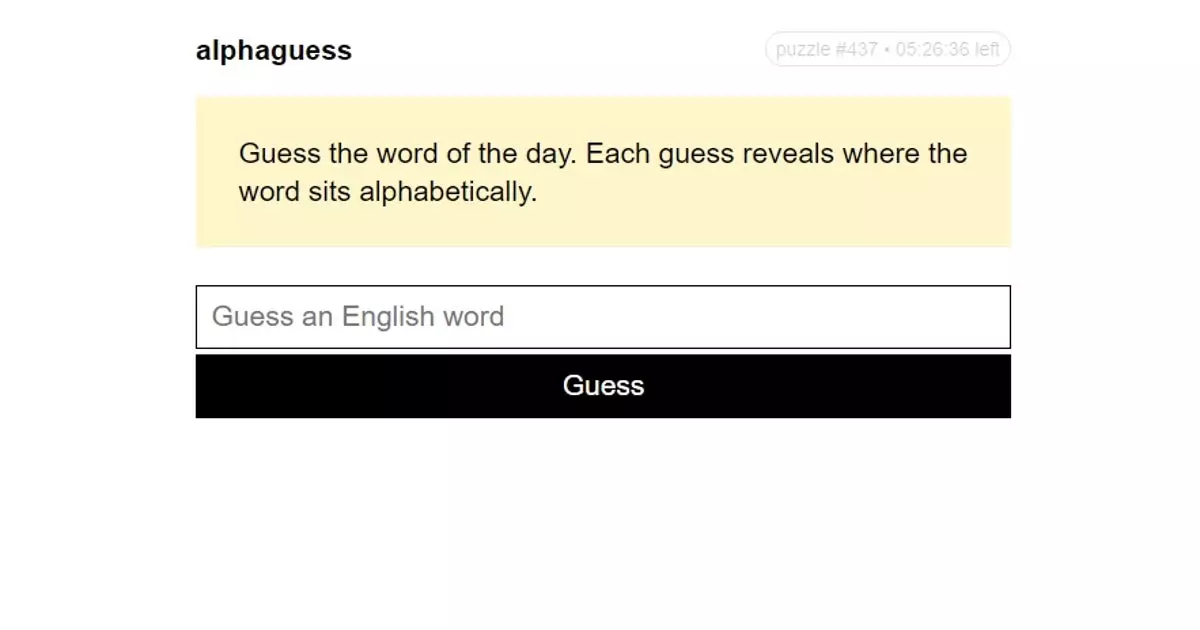In today’s fast-paced world, where productivity often takes precedence, everyday puzzles like Alphaguess and Wordle have emerged as interesting diversions that can easily consume our attention. While some may dismiss these games as mere time-wasters, they present an intriguing blend of challenge and entertainment that captivates players. The essence of these games lies not in their complex rules or demanding strategies but rather in their capacity to engage our minds in a light-hearted manner.
Alphaguess, a simple yet thought-provoking word-guessing game, exemplifies this. Players are tasked with deducing a hidden word based solely on the alphabetical position of their guesses. When playing, one can’t help but feel a sense of iterative learning, albeit without the heavy investment of time or mental strain typically associated with more intricate puzzles. This iterative process reflects a playful interaction with language that is both refreshing and surprisingly addictive.
One of the most notable aspects of Alphaguess is its inherent accessibility. The game’s structure guarantees eventual success as long as players stay engaged. Unlike more complex puzzles that might require deep lateral thinking or nuanced understanding, Alphaguess offers a direct path to the solution: guess and refine based on feedback. The absence of excessive complexity keeps players hooked while simultaneously enhancing their cognitive abilities. This simple mechanic invites repeated play, making it perfect for brief breaks during a busy day.
However, the joy of engaging with Alphaguess may not entirely be about the word itself but rather about the experience that comes with the guessing process. When a player makes an incorrect guess, they not only eliminate one option but also gain valuable insight into the parameters of the puzzle. This back-and-forth interaction embellishes the playful experience reminiscent of childhood games—simple yet thoroughly enjoyable.
These word games also serve as a social lubricant, facilitating conversations and friendly competitions among peers. The sharing of scores and strategies can spark lively discussions, fostering a sense of community. In this way, engaging with Alphaguess or similar games transcends mere individual enjoyment; it cultivates connections between players who challenge each other to improve their skills. This communal aspect is often overlooked yet is crucial in understanding why these games have flourished in recent years.
Moreover, platforms like Caroline Crampton’s newsletter play an essential role in disseminating these games to a broader audience. By linking to engaging content, they bridge the gap between casual gamers and richer interactive experiences. The ripple effects of such recommendations ensure that new participants continually discover these games, fostering a culture of playful learning and community engagement.
At their core, games like Alphaguess represent the innate human desire to learn and explore. They are not merely distractions; they are reflections of our curiosity and adaptability. While it may seem trivial on the surface to engage in a game about guessing words, the deeper implications speak to the human experience—our ceaseless inclination to challenge ourselves, even in the most mundane settings. This is the true brilliance of such games, as they allow us to balance the demands of productivity with the fundamental joy of discovery.

